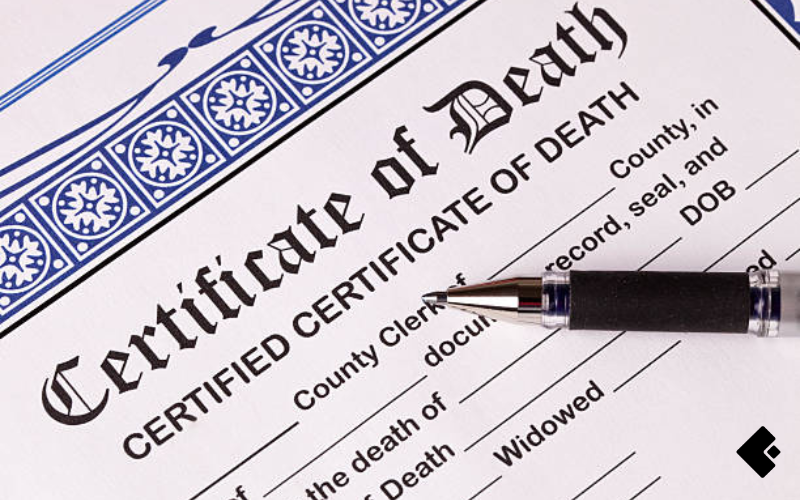In workers’ compensation case management, some of the most deceptively complex questions are also the simplest—like: Is the claimant still alive?
For agencies managing long-term claims—especially those involving older individuals on the Periodic Roll—verifying whether a claimant is living can be a recurring challenge. This is particularly true when communication dwindles, and file information is sparse. At Frasco Investigative Services, we’ve seen how the absence of this vital information creates uncertainty, compliance risk, and potentially costly overpayments.
This issue comes to light every year with Form CA-1032, a Department of Labor, Office of Workers’ Compensation Programs (OWCP) form that must be completed by claimants receiving Federal Employees’ Compensation Act (FECA) benefits. This form is issued to claimants who have been on the OWCP periodic roll greater than 365 days and issued yearly, this occurs 30 days before the claimant’s birthday. The form’s non-return-especially after a second mailing from OWCP—can signal a red flag. But silence doesn’t confirm death, and OWCP will often suspend benefits without formal closure.
However, in conjunction with the reply of Form CA-1032 the claimant must provide medical documentation that aligns with the claimant’s Periodic Roll claim status listed below:
- Periodic Roll (PR)-Medical information is required once a year
- Loss of Wage-Earning Capacity (PW)-Medical information is required every 2 years
- No Wage-Earning Capacity (PN)-Medical information is required every 3 years
Knowing that medical evidence is required as determined by the Periodic Roll case status and failure to have medical documentation within the required time periods could also be a red flag for FECA fraud. A family member may complete and return CA-1032 which will allow continued compensation payments to be issued. However, the absence of medical documentation, especially older individuals, without the required medical documentation should also raise case management concerns.
Why This Matters
When a claimant has passed away but hasn’t been officially documented as deceased:
- The OWCP may continue making payments unknowingly
- The claim remains unresolved, with the risk of overpayment; or FECA fraud
- Survivor benefits may be missed, especially if the death is related to the original injury or illness
- The claim remains open, preventing proper closure and financial reconciliation
In these situations, accurate death verification becomes a case management priority.
How Frasco Can Help
While Frasco doesn’t have direct access to the Social Security Administration’s (SSA) internal death data (a privilege generally reserved for large federal exchanges), we do maintain indirect but powerful access through trusted providers like LexisNexis and IDI (Interactive Data LLC).
These sources pull from:
- The SSA’s Death Master File (DMF)
- State-level death records
- Credit bureau death indicators
- Aggregated obituaries
- Public and proprietary data sources
Cross-referencing multiple databases helps ensure we triangulate evidence to reach a confident determination, even when one source comes up empty.
A Real-World Application: Integrating with CA-1032 Monitoring
Agencies can integrate Frasco’s death verification services into existing CA-1032 monitoring workflows. When a claimant fails to return the form—particularly after reissuance, or absence of medical documentation – our team can initiate a targeted death search to confirm status. If death is confirmed, OWCP can:
- Change the claim status to C5
- Determine potential overpayments based on date of death and initiate referrals to Office of the Inspector General (OIG) for potential FECA fraud
- Begin outreach to surviving dependents to develop potential survivor benefits (if applicable)
This information supports clean claim closure, financial integrity, and ensures compliance with federal mandates.
Capturing this information timely, mitigates timely overpayments, avoiding a time-consuming overpayment recovery period.
Beyond a Simple Search: Investigative Value
While some may turn to ancestry databases or search engines with mixed results, Frasco’s experience brings a professional layer of precision and documentation. Our investigative approach is backed by:
- Legal-grade documentation
- Experience with federal case protocols
- The ability to integrate findings into broader case reviews or surveillance efforts
A Thought for the Future
This service could easily be integrated as a feature of a broader case management contract. CA-1032 is not considered a substantive form by OWCP and as such, OWCP does not have to release this form to the employing agency. For agencies struggling with aging claims and murky status updates, this verification layer can provide much-needed clarity and accountability.
Want to Learn More?
Explore how leading government agencies and risk managers are using our investigative services to strengthen oversight of legacy claims.
📄 Download our white paper: FECA Claims Investigations by the Numbers
📆 Book time with Craig DeMello to discuss integrating death verification into your case management process: Schedule a call
Disclaimer: This blog post is for informational purposes only and should not be considered legal advice. Please consult your general counsel for specific legal guidance. Frasco investigators hold licenses, and we ensure our operations comply with US industry, federal, state, and local laws.

